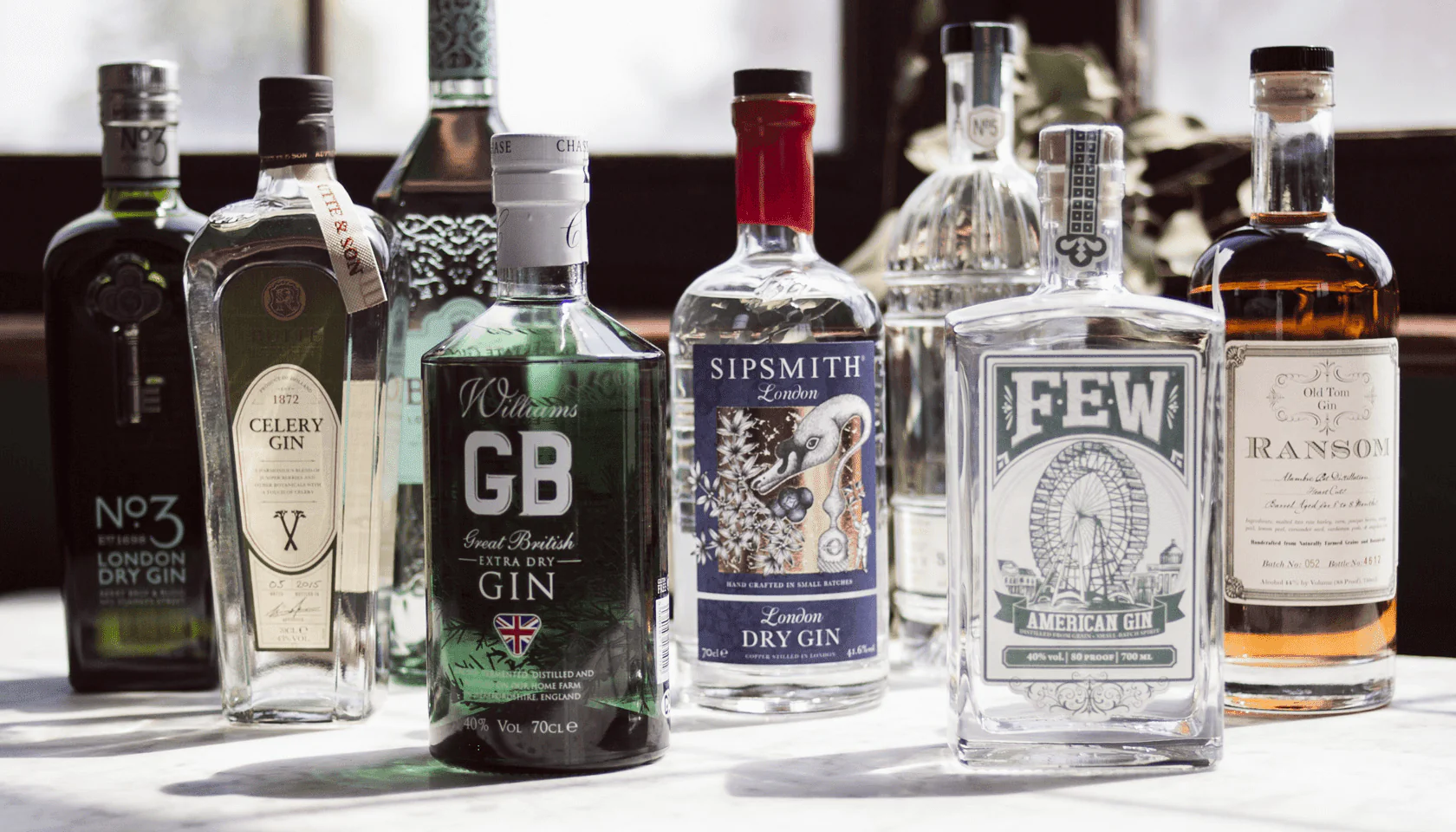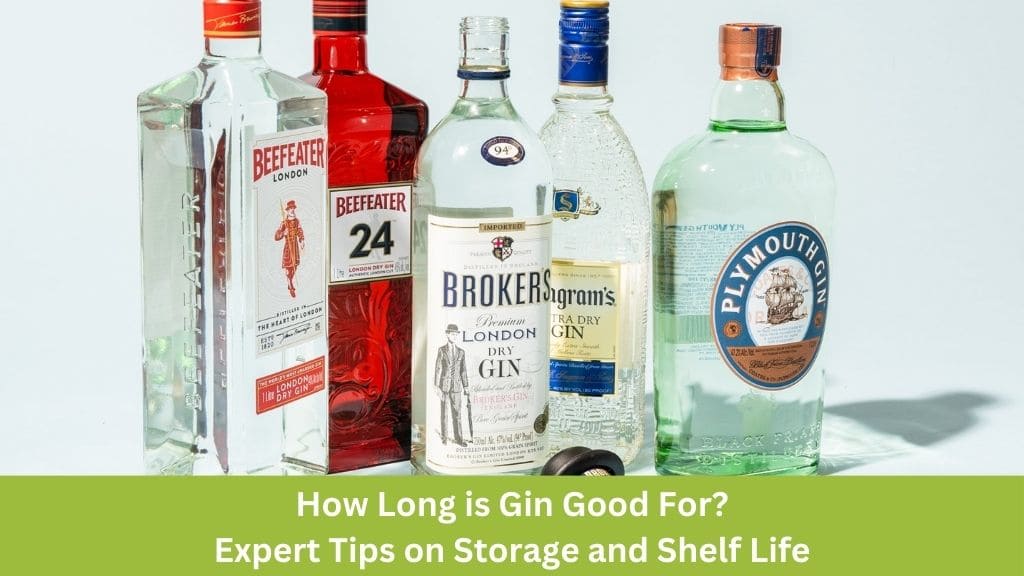Gin, a staple in many households and a favorite in countless cocktails, often raises questions about its longevity and storage. Understanding how long gin is good for, whether it’s opened or unopened, and how to store it properly can ensure you enjoy its full potential. This comprehensive guide explores the shelf life of gin, the factors affecting its longevity, and best practices for storage. Using insights from Natural Language Processing (NLP) and machine learning, we provide accurate and up-to-date information to answer all your gin-related queries.
Gin, with its rich history and diverse flavor profile, is a versatile spirit enjoyed worldwide. Whether you savor it in a classic gin and tonic, a sophisticated martini, or simply neat, knowing how to store gin and understanding its shelf life can enhance your drinking experience. This article delves into the nuances of gin storage and longevity, leveraging modern NLP and machine learning to provide reliable guidance.
The Stability of Gin

What Makes Gin Stable?
Gin is a distilled spirit, which inherently makes it more stable than many other alcoholic beverages. The distillation process removes impurities and results in a high alcohol content, typically between 37.5% and 50% ABV (alcohol by volume), which acts as a natural preservative. This high alcohol content, combined with the absence of sugars and other perishable ingredients, means that gin can last for a long time when stored correctly.
Does Gin Go Bad?
Unopened gin is highly stable and can retain its quality and flavor indefinitely if stored properly. However, once opened, the exposure to air and environmental factors can start to affect its quality over time.
Shelf Life of Unopened Gin
Unopened bottles of gin can last indefinitely. The alcohol content and lack of sugars and perishable ingredients mean that, when kept in the right conditions, the gin will not spoil or go bad. However, it’s essential to store unopened gin bottles properly to preserve their quality.
Shelf Life of Opened Gin
Once you open a bottle of gin, its shelf life starts to decrease. Although it won’t spoil like perishable foods, the flavor and quality of gin can change over time due to exposure to air, light, and temperature fluctuations.
Recommended Consumption Time
It is generally recommended to consume opened gin within 2 years for the best taste. Over time, oxidation can alter the flavor profile, making it less vibrant and more muted. To minimize these changes, proper storage is crucial.
Factors Affecting Gin’s Longevity
Several factors can influence how long your gin stays good after opening. Understanding these can help you maintain the quality of your gin for as long as possible.
Light Exposure
Direct sunlight can degrade the compounds in gin, leading to a loss of flavor. Ultraviolet (UV) rays can break down the aromatic compounds and essential oils that give gin its distinctive taste.
Temperature Fluctuations
Temperature fluctuations can also affect the quality of gin. Extreme temperatures, both hot and cold, can cause the liquid to expand and contract, potentially breaking down the flavor compounds.
Air Exposure
Once a bottle of gin is opened, air exposure begins to affect the liquid inside. Oxygen in the air reacts with the alcohol and other compounds in the gin, leading to oxidation. This process gradually alters the flavor and aroma of the gin.
Proper Storage Techniques
To maximize the shelf life and maintain the quality of your gin, follow these best storage practices.
Ideal Storage Conditions
Store your gin in a cool, dark place, away from direct sunlight and heat sources. A pantry or a cabinet that doesn’t experience significant temperature changes is ideal. Ensure the bottle is tightly sealed to prevent air from entering.
Freezer Storage
Storing gin in the freezer is a common practice, especially for those who enjoy their gin neat or in martinis. Pure gin won’t freeze in a standard household freezer set to -18°C (0°F), as its freezing point is around -27°C (-17°F). Freezing gin can soften the harshness of the alcohol, making it smoother to drink.
Note: Gin liqueurs and flavored gins with lower alcohol content or added ingredients may freeze or partially freeze, which could affect their consistency and flavor.
Storing Gin on Its Side
Gin can typically be stored on its side without issue. However, if your gin bottle has a natural cork stopper, it’s best to store it upright. Some corks can deteriorate when in constant contact with alcohol, potentially imparting unwanted flavors to the gin.
Special Considerations for Flavored and Liqueur Gins
Flavored gins and gin liqueurs often contain additional ingredients such as fruit extracts, spices, and sweeteners. These additions can make the gin more susceptible to changes in flavor and quality over time.
Shelf Life of Flavored Gins
Flavored gins should ideally be consumed within a few months of opening. The natural ingredients and added sugars can cause these gins to degrade faster than pure gin.
Storage Tips for Flavored Gins
Store flavored gins in a cool, dark place and ensure the bottle is tightly sealed. For optimal freshness, consider finishing these gins within 6 months of opening.
Signs Your Gin Has Gone Bad
While gin doesn’t spoil in the traditional sense, certain signs indicate that its quality has deteriorated:
- Off Odor: If your gin smells different than when you first opened it, such as having a musty or sour scent, it’s a sign that it has oxidized.
- Change in Color: A noticeable change in color can indicate that the gin has been exposed to light or has started to degrade.
- Altered Taste: If the gin tastes flat, dull, or different from its original flavor, it has likely been affected by oxidation.
Conclusion
Gin is a durable and stable spirit that, when stored properly, can last indefinitely unopened and maintain its quality for up to 2 years after opening. By understanding the factors that affect gin’s longevity and following proper storage techniques, you can ensure that your gin remains fresh and flavorful for as long as possible. Whether you prefer your gin in a classic cocktail or enjoy experimenting with flavored varieties, these tips will help you get the most out of your favorite spirit.
I’m Chen Mina, from Vol de Nuit, who has a special passion for bartending, especially mixing wine, beer, and cooktail. Here you will find content about alcoholic beverages, I will bring you knowledge that few people know about this drink.






